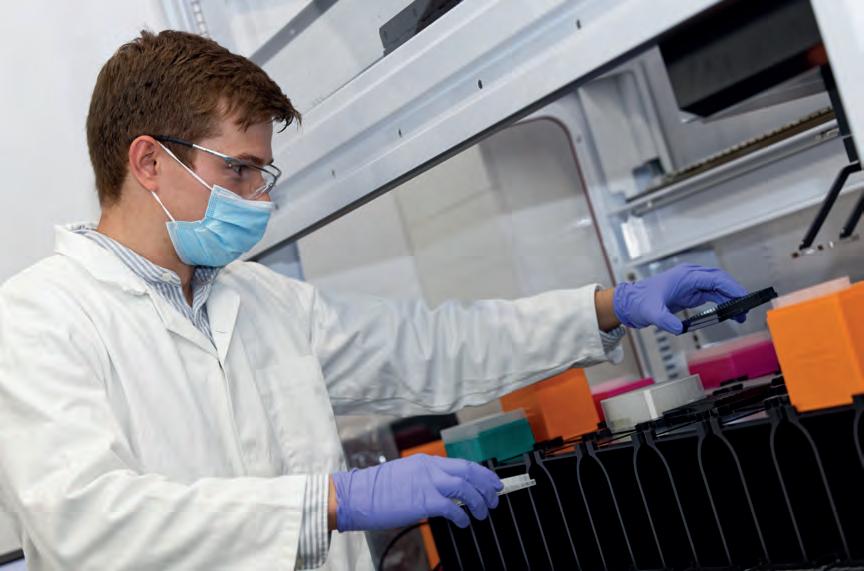
2 minute read
A synergistic energy _________________________________________________________
Rob Horne explains why he chose to work at Wren Therapeutics before starting his PhD in the CMD.
Idid my Part III project in the CMD, which involved identifying antibodies that bound to alpha-synuclein, the key culprit in Parkinson’s disease. The project won the prize for best biological project that year which was a great start to my time in the CMD. I was considering a long-term career in science at that point but I knew I didn’t want to do a PhD immediately, so I joined Wren.
Access to expertise
A lot of the people in the CMD tend to work for Wren at some point, which as a student gives you two spheres of expertise you can consult. Group members who are nishing o their PhDs or postdocs and might have headed o elsewhere also often stay and work for Wren for a couple of years, and so continue to share their knowledge. At Wren I was given the opportunity to lead the alphasynuclein project with the incredible support and mentorship of Xiaoting Yang, one of Wren’s principal scientists, and Head of Research Johnny Habchi. It took a little over a year to get our rst big partnership deal, at which point I realised I wanted to stay in science, but knew I needed a PhD.
Wren funds PhD projects in the CMD through a programme called Nidus. A panel with two members from Wren and two from the Chemistry Department selects which projects to fund. I was lucky enough to have my project selected, so now I am in the second year of my PhD in the CMD, but I also work (part-time) as a consultant for Wren, which gives me a lot of variety in what I do, plus some extra income!
My research involves developing machine learning and statistical learning methods to more e ciently identify and optimise molecules that could act as inhibitors of alpha-synuclein oligomer formations, which are implicated as pathological agents in Parkinson’s disease. Part of the cool thing about this project is that I was able to combine computational methods with experimental work. Since machine learning is drastically changing everything, I was very keen to see if I could apply it, and since I had all the expertise necessary to test my model predictions I had the rare opportunity to both employ and experimentally validate my machine learning models. It’s been a steep learning curve, but it’s looking very successful so far.
Synergistic
I think we have a rather special synergistic situation here, where the CMD is doing important exploratory research, and if a project is of translational interest Wren can take it on and scale it up. I think that feeds into what most scientists want, which is to see their work applied in a practical way to bene t people. With Wren, you feel like someone will be using what you’re doing.
My point of view is that it’s probably wiser to try scienti c work in biotech before doing a PhD, because it prepares you better than going straight from an undergrad and gives you a taste of whether scienti c work is right for you. After my PhD I’ll probably head back to Wren, at least for a while.










